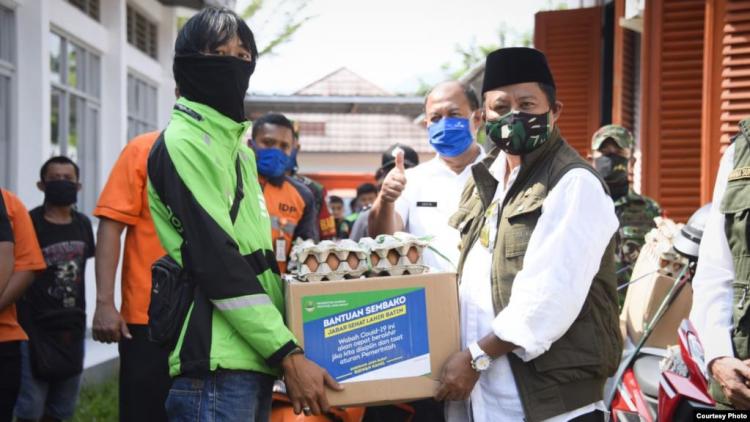Transparency and Accountability of Public Procurement during COVID-19

Indonesia is one the countries affected by Coronavirus Disease 19 or commonly known as COVID-19. The disease had entered Indonesia since 2 March 2020 and has grown exponentially up until now. As of 13 May 2020, the COVID-19 have reached 15,438 cases among Indonesian people and 1,028 had died due to the Corona.
Based on the Global Health Resilience Index in Southeast Asian region published in October 2019 by the Nuclear Threat Initiative, Indonesia ranks the fourth position with a score 56.6 out of 100. Higher value means a better health resilience index. Globally, Indonesia ranks 30th out of 195 countries. The assessment is based on six categories, such as: prevention, detection and reporting, fast-response, resiliency system, compliance with international standards, and the environmental risks. The index signifies the health resilience in Indonesia is not poor.
However, the factual shows the opposite. Indonesia is considered incapable to overcome the COVID-19. The statistic of the factual Corona virus positive in Indonesia is higher than other Southeast Asian countries. The mortality number in Indonesia is very much similar with the Philippines which is 6,7%. This situation that shows Indonesia is incapable to overcome the pandemic.
In order to suppress the massive virus spreads and to eliminate ongoing casualties, public activities need to restricted by the government, including the restriction upon domestic or international travel and public mobility by applying stay-at-home regulation, closing public spaces that potentially could create a mass and others. Besides that, the government also required to develop a tracking system for the infected people since the symptoms of COVID-19 appear undetected.
Aside from activity restriction, World Health Organisation (WHO) urged all countries to multiply the COVID-19 test, because, one of the ways to break the virus spreads is by detecting the people whom have contacted with the indicated person. In this context, the country needs massive virus testing kit to detect each citizen.
States’ role in overcoming the virus spreads is not only based on testing kit procurement, but also on ensuring the medical workers are equipped by Personal Protective Equipment (PPE) to minimize the exposure of the virus while doing the treatment. The government’s discourse now has also discussed about drug’s availability for the COVID-19 cases.
Therefore, to mitigate non-natural disaster, the government need to publish several policies, such as: Government Regulations in Lieu of the Constitutions number 1 of 2020 concerning the State Financial Policy and Financial System Stability to Overcome the Corona Virus Pandemic (Perppu I/2020). That regulation is one example of how to control the budget that will be disbursed to handle the pandemic which amounted around Rp. 405,1 billion.
The budget will be disbursed into four categories, such as: 1) Health sector expenditure amounted Rp. 75 billion, 2) Tax incentive and stimulus for People’s Business Loans (KUR) amounted Rp. 70,1 billion, 3) Social protection amounted Rp. 110 billion, and 4) Economy recovery programme amounted Rp. 150 billion.
The amount of the allocated budget by the government to overcome COVID-19 could potentially be misused if there is a vague control and also an amount of discretion taken by the public official, especially in terms of goods and service procurement.
Hence, the Indonesian Corruption Watch (ICW) developed an analysis to observe the potential foul that occurred related with goods and service procurement during the pandemic. This is done to give a recommendation to the policy maker to carry the procurement process without neglecting the principle and ethics.
Download the policy paper below.










